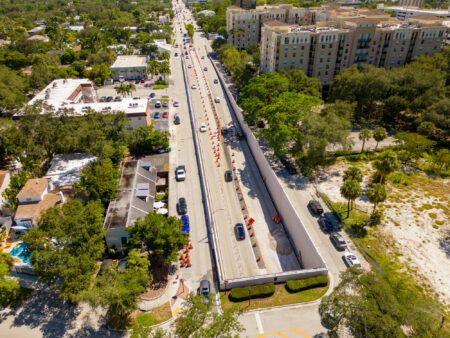The UK Department for Transport (DfT) has released plans to build a tunnel on the A303 that will run under the iconic landmark Stonehenge. It forms part of a roads package to cut congestion in the southwest of England.
The UK Transport Secretary, Chris Grayling, has unveiled major plans to transform the A303 trunk road, as part of a £2bn (US$2.4bn) investment in the southwest, which will see the construction of a tunnel at the historic Stonehenge site. The upgrade will develop the A303 corridor into a high quality, high performing route, linking the M3 in the southeast and the M5 in the southwest, improving journeys for millions of people. The heavily-congested route is used by tens of thousands of people every day, including tourists on their way to some of the country’s favorite holiday destinations.
Drivers, hauliers, residents, and other road users are being invited to have their say on the proposal to upgrade a 7-mile (11km) long single carriageway stretch of the A303 near Stonehenge in Wiltshire into a dual carriageway. The single carriageway section of the A303 currently runs alongside the ancient standing stones and the proposed option is to construct a 1.8-mile (2.9km) long dual carriageway tunnel to improve journey times, remove the sight and sound of traffic, and enhance the World Heritage Site (WHS). The Stonehenge scheme proposals also include a bypass for the village of Winterbourne Stoke, and improvements to existing junctions between the A303 and the intersecting A345 and A360 north-south roads.
The A303 section between Amesbury and Berwick Down currently runs through the Stonehenge, Avebury and Associated Sites WHS, and Winterbourne Stoke. The WHS is cut in two by the A303 at the moment and is spoiled by the sounds and sights of traffic. The DfT says placing the A303 in a tunnel would enhance the site, making Stonehenge easier to get to, and would reconnect the stone circle with nearby ancient monuments. The Stonehenge consultation runs between January 12 and March 5. Following the consultation process, the preferred route will be announced later in 2017, subject to the completion of statutory procedures.
Announcing the scheme, Grayling said, “This government is taking the big decisions for Britain’s future, underlined by our record £15bn (US$18.3bn) funding for road schemes. This major investment in the southwest will transform the A303 and benefit those locally by cutting congestion and improving journey times. It will also boost the economy, linking people with jobs and businesses with customers, driving forward our agenda to build a country that works for everyone, and not just the privileged few.”
Highways England’s chief executive, Jim O’Sullivan, commented, “We are delivering the biggest investment program in our roads in a generation. Our plans for the A303 recognize the national importance of the route, and these improvements will bring real benefit to the region and local communities. The public exhibitions will provide an excellent opportunity to explain further our plans and to hear feedback from stakeholders on our proposals to deliver the scheme.”




